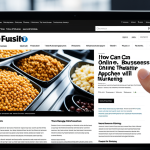Understanding Current Economic Challenges
As the U.K. economy faces a turbulent phase, businesses are grappling with various economic challenges, primarily dominated by rising inflation trends. The continuous increase in prices is exerting pressure on operational costs, affecting both large corporations and SMEs alike. This climate of heightened financial strain obliges businesses to rethink their strategies to maintain profitability and competitiveness.
Supply chain disruptions further aggravate these challenges, as businesses experience delays and shortages in obtaining essential materials. With supply networks stretched thin globally, operations are significantly impacted, making dependency on international suppliers a riskier proposition. Companies are increasingly focusing on diversifying their supplier base and considering local sourcing as viable contingencies to mitigate these issues.
Also to discover : What are the key factors driving growth in the UK business landscape?
Moreover, changing consumer behavior in response to economic pressures is reshaping market dynamics. Consumers are more cautious with their spending, seeking cost-effective alternatives and prioritizing essentials over luxury items. This shift necessitates agile adaptations in product offerings and marketing strategies to resonate with evolving consumer priorities. Businesses that successfully navigate these changes by understanding and anticipating consumer needs will be better positioned to thrive in this challenging economic environment.
Strategic Adaptation for U.K. Businesses
In the face of current economic challenges, U.K. businesses must adopt resilient strategies to navigate turbulent financial landscapes. Central to this adaptation is a robust business strategy that involves prudent economic management and long-term resilience building.
In parallel : Shaping tomorrow with vallourec's new energies solutions
Financial Management Strategies
To enhance resilience, businesses are focusing on cash flow optimization. Effective techniques, such as close monitoring of incoming and outgoing funds, help maintain liquidity. Strategic budget reallocations towards areas of critical need also aid in sustaining operations. Furthermore, exploring alternative financing options like grants or low-interest loans can provide essential support during financial strains, ensuring that businesses have the necessary funds to continue their operations effectively.
Supply Chain Resilience
Supply chain flexibility is crucial in mitigating disruptions. Diversifying suppliers ensures availability and reduces dependency on single suppliers. Leveraging technology for supply chain management enhances transparency and efficiency, allowing businesses to quickly adapt to changes. Additionally, building inventory buffers for key products can prevent shortages and keep operations running smoothly, providing a safety net against unforeseen supply delays.
Adapting Marketing Strategies
Adapting marketing efforts involves enhancing a company’s digital presence, crucial in reaching consumers who increasingly prefer online shopping. Tailoring product offerings to meet changing consumer preferences ensures relevance in the market. Employing data analytics for targeted marketing campaigns enables precision in reaching desired audiences, improving engagement and conversion rates by aligning marketing strategies with consumer behaviors.
Case Studies of Successful Adaptations
Examining real-life examples of U.K. companies that have successfully navigated the treacherous waters of economic downturns provides insightful lessons. These businesses not only survived but thrived by leveraging innovative and adaptive strategies.
Several companies have gained attention for their resilience planning amidst the economic challenges. One such example is a mid-sized retail company that embraced digital transformation early on to buffer against declining in-store sales. By enhancing their online presence, they captured a broader audience and optimized their logistics to handle increased digital demand. Another key strategy was diversifying their product line to include more essential goods, directly responding to changing consumer behavior.
On the other hand, a B2B service provider successfully weathered the storm through strategic cash flow management, reallocating budgets to critical areas such as technology upgrades and workforce training. They also explored alternative financing options to fund these initiatives, significantly strengthening their market position.
Lessons learned from these cases underscore the importance of foresight and flexibility. Emphasizing the role of business strategy, successful companies stayed agile, adapted rapidly to disruptions, and employed economic adaptation tactics effectively. These experiences highlight the necessity of robust planning and the continuous reassessment of strategies to meet evolving challenges.
Expert Opinions and Resources
Gaining expert insights and accessing relevant business resources is crucial for U.K. businesses striving to thrive amidst economic challenges. By understanding industry perspectives and utilizing available tools, companies can enhance their adaptive strategies.
Industry Expert Insights
Economic experts emphasize the importance of business strategy and resilience planning. They note that U.K. businesses should stay informed about trends and foster innovation to remain competitive. Insights often include strategies for navigating inflation trends and adapting to fluctuating market demands. Many experts predict a continued emphasis on technology-driven solutions to boost efficiency and stability.
Recommended Resources for Businesses
Various resources are available to aid businesses in maintaining financial health and adaptability:
-
Financial Planning Tools and Apps: These assist in cash flow optimization and efficient budget reallocation. They offer analytics to support economic adaptation.
-
Online Courses for Skills Enhancement: Courses tailored to current economic pressures provide valuable insights into supply chain resilience and other key operational areas. They support skills development to meet evolving business needs.
Incorporating expert advice and leveraging these resources can significantly bolster a business’s ability to withstand current economic trials and promote sustainability.
Conclusion: Building Long-Term Resilience
Navigating a volatile economic environment requires businesses to adopt a mindset focused on long-term resilience. This means not only responding to immediate challenges but also creating business sustainability for the future. Innovation and technology are pivotal in this regard, serving as enablers of efficient operations and providing a competitive edge. Companies must prioritize economic adaptation to ensure they can withstand future uncertainties, and fostering a culture of resilience within organizations is crucial. Engaging teams in continuous improvement and learning encourages agility, ultimately securing a stable and prosperous economic future for the business.







